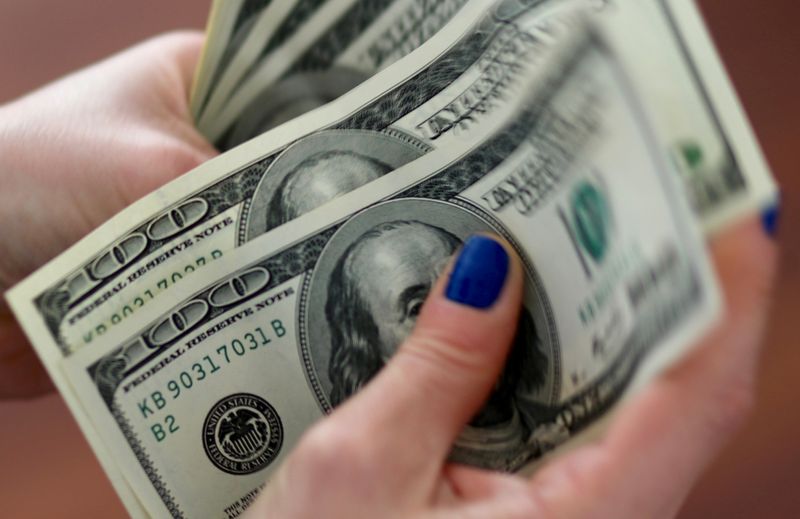WASHINGTON (Reuters) – U.S. economic growth slowed a bit more than previously estimated in 2019 as the sugar high from the Trump administration’s $1.5 trillion in tax cuts faded over the final year of a record-long expansion that came to an abrupt end in February in the face of the global coronavirus pandemic.
The Commerce Department said on Thursday gross domestic product increased 2.2% last year, revised down from the previously estimated 2.3% and also reflective of consumer spending that had begun to show signs of fatigue heading into 2020. The 2019 growth rate was the slowest expansion since 2016.
Though the updated data showed the massive fiscal stimulus lifted GDP to the White House’s 3% target in 2018, growth fell shy of the 3.1% logged in 2015 under President Barack Obama.
President Donald Trump has repeatedly boasted about the economy, writing on Twitter in February, “BEST USA ECONOMY IN HISTORY!” On the campaign trail in 2016, Trump claimed he could boost annual GDP growth to 4%. Economists have always cautioned the economy did not have the capacity to grow 3% annually on a sustained basis because of low productivity among other factors.
The revision to 2019 growth came as GDP in the second quarter of that year was significantly cut, reflecting downgrades to consumer spending and business investment in equipment. Though growth in the second half was much stronger than previously reported, it was mostly driven by a shrinking import bill.
Growth in consumer spending was marked down through the last six months of 2019, indicating a loss of underlying economic strength even before the COVID-19 pandemic hit the United States’ shores and tanked the economy in the first quarter of this year. The economy fell into recession in February.
The updated GDP data showed the economy growing at an average annual rate of 2.5% from 2014 to 2019, up from the previously reported 2.4%. When measured from the fourth quarter of 2014 to the fourth quarter of 2019, GDP increased at an unrevised average of 2.3%.
The saving rate was cut to 7.5% from 7.9%, with personal income lowered $56.8 billion, or 0.3% in 2019. Corporate profits were raised $175.9 billion, or 8.5%.
(Reporting by Lucia Mutikani; Editing by Andrea Ricci)

























